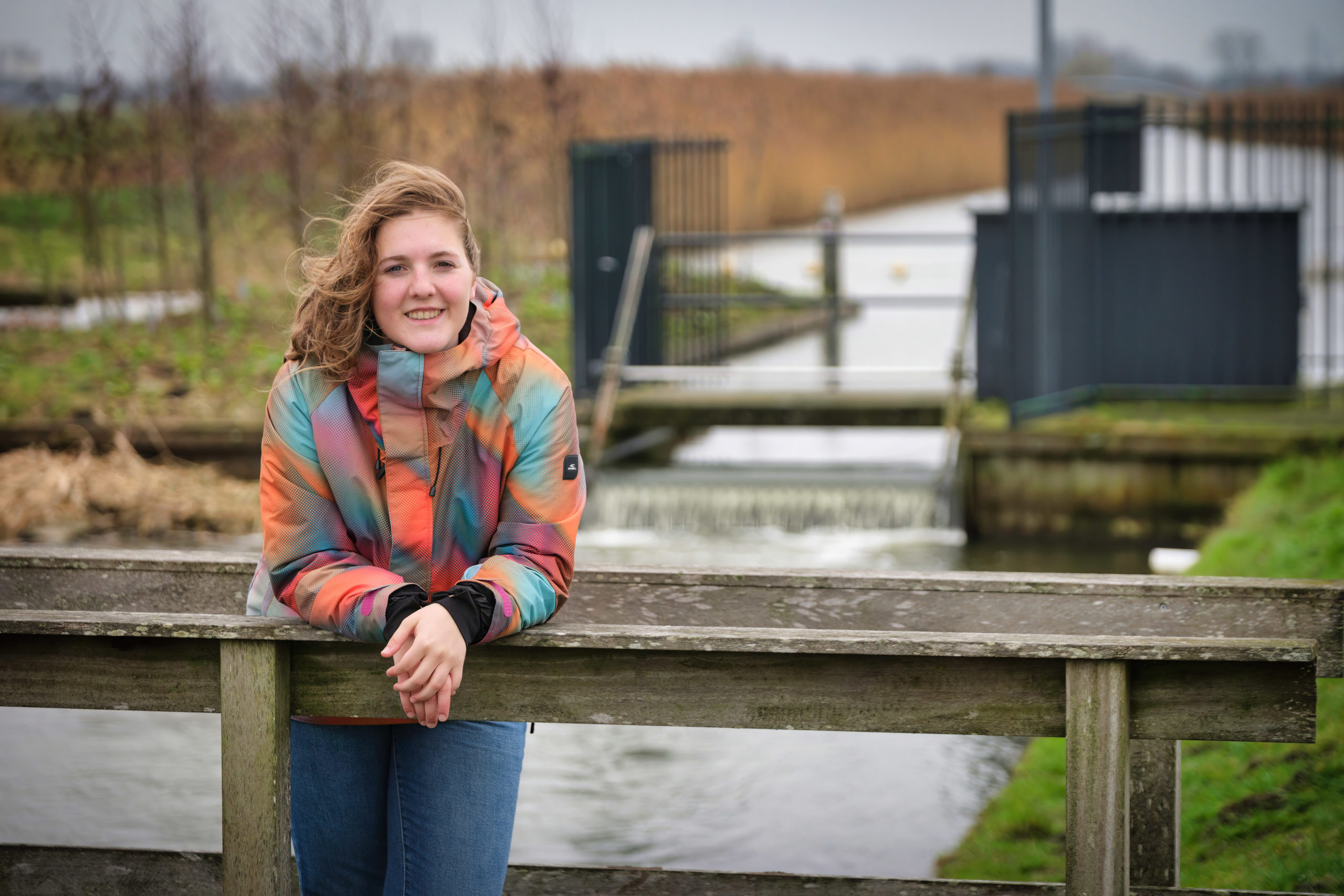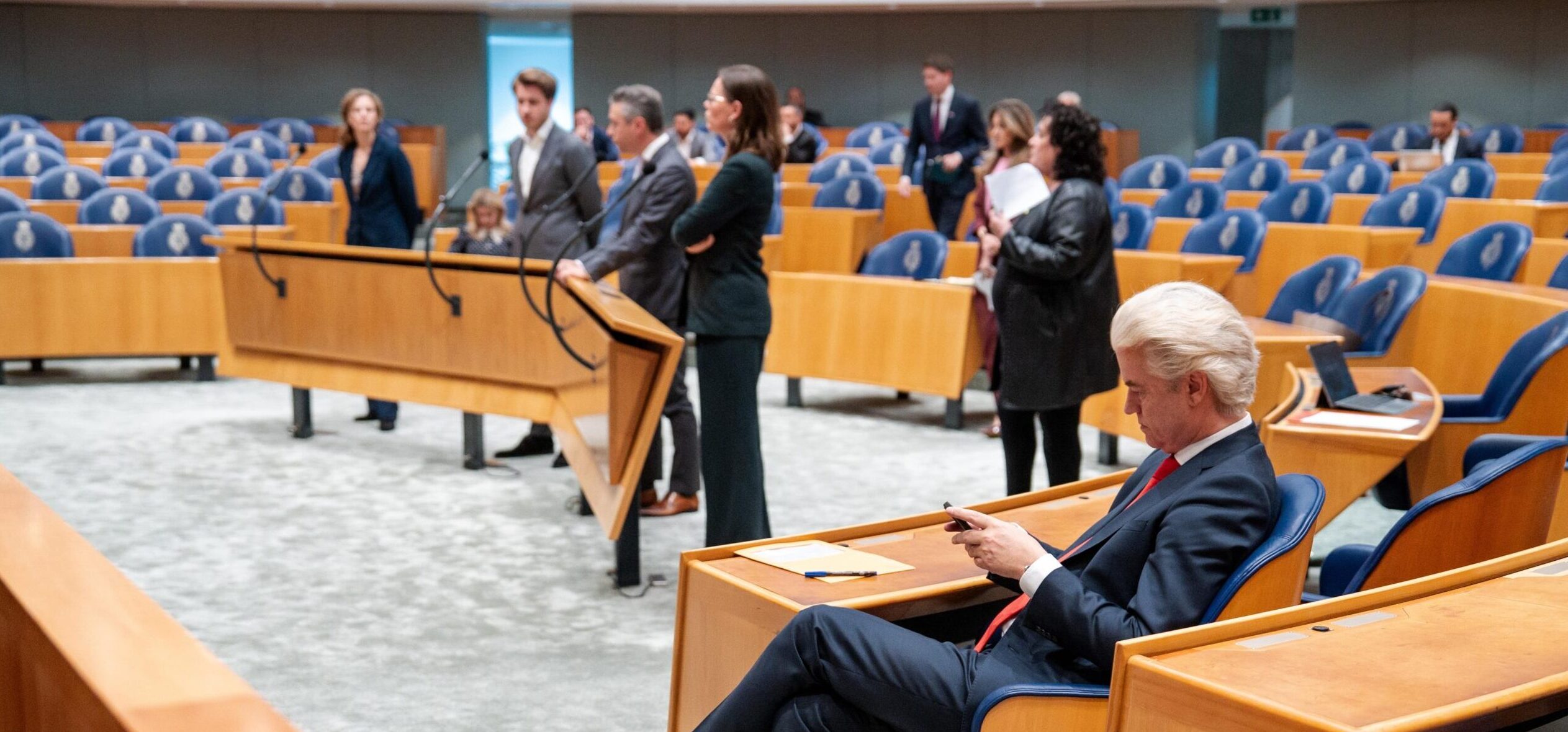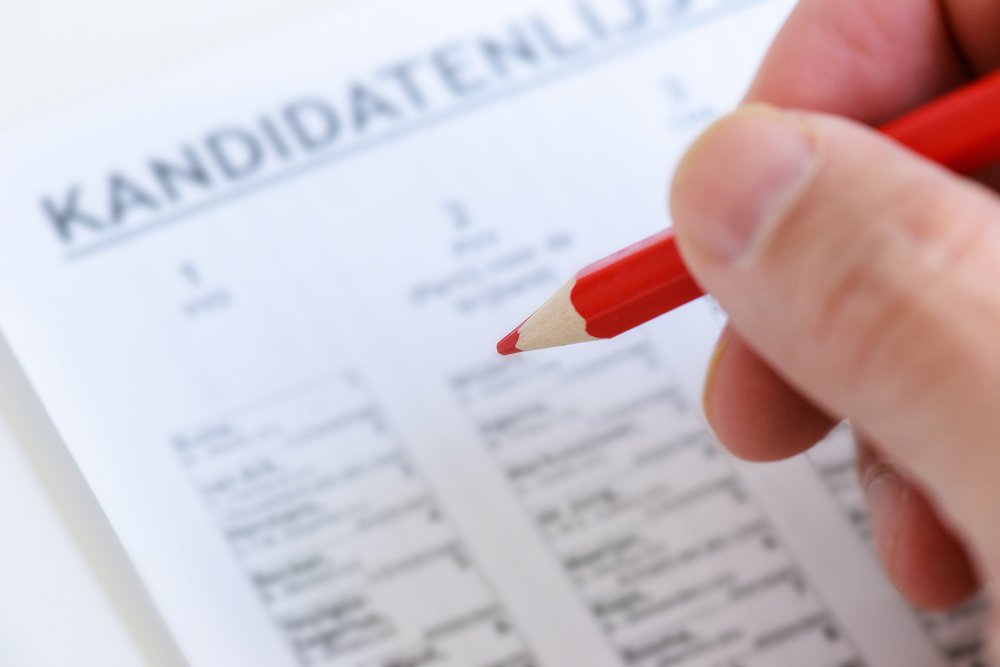The typical water board member is a man in his sixties. High time for more diversity, thinks Bachelor’s student of International Land and Water Management Jiska Taal (20). So she is standing for election on 15 March.
What exactly are these water boards?
‘Water boards are the oldest governance systems we have in the Netherlands. The earliest water boards date back to the 13th century. Long story short, water boards take care of water management in the broadest sense of the word: from the quality of surface water and sewage treatment to protecting people from water with dykes, for example.’
You are studying International Land and Water Management. Did you get interested in the water board elections through your studies?
‘It was the other way round, actually: I ended up doing this degree programme through the water boards! When I was at secondary school, someone from the Delfland water board visited our class. They were looking for youth administrators. I applied and took part in a kind of youth election. Before I knew it, I was on the youth board for four years, including one year as youth water board member for the whole of the Netherlands. I learnt a lot about water boards from that, and saw how important that work is. And that led me to start a degree in International Land and Water Management here.’
Now you want to rejoin the water board. Why?
‘I have followed the water boards ever since being on the youth board. You are on a water board for four years. I have been doubtful as to whether it wouldn’t take up too much time alongside my studies: I want to finish my Bachelor’s and am considering doing a double Master’s degree. I also wondered whether I know enough about the subject yet. But after talking to several people, I thought: you know what, I’ll just do it. The work is super interesting and I think something’s really got to change. I have a lot to learn still, but I don’t have to do it on my own and with my background in terms of my degree and my experience in the youth board, I’m sure it will work out. So now I am on the list of the General Water Board Party. That party has no links with political parties and governs on the basis of expertise.’
What’s got to change?
‘Most water boards consist mainly of men in their sixties. I am three times younger and I am a woman. It is good for people with different perspectives to have a say in decisions. Decisions get made for us at the moment, and we have no real voice. One of my priorities is the long term. Water boards are now making plans for 2050, but I won’t even be 50 then. So I say: come up with a vision for 2100. And weigh up the consequences for future generations of every decision or plan. I stand for climate mitigation: changing things now to ensure you limit the effects of climate change. If we do that, we won’t need as many major measures in the future. And I want to focus on desiccation on the Veluwe plateau. Because of all the coniferous woods there, a lot of water evaporates and the area is drying out. By gradually turning them into deciduous woods, you improve the water management and the biodiversity.’
What’s the connection with your degree programme?
‘I did a minor in Forest and Nature Conservation and it made me want to go further in that field. I want to combine the Forest and Nature Conservation Master’s with the Master’s in my discipline, International Land and Water Management. The interaction between those two disciplines is interesting. A good example is the desiccation of the Veluwe that I just mentioned, where a different type of forest can improve water management.’
Soon there will be campaign ads with my face on them. That will be weird
That sounds like a lot to me: two Master’s programmes plus the water board.
‘It will be time-consuming, of course. But I don’t mind that because I find this super interesting and I want to make the Netherlands a bit more attractive and better protected. I will need an extension on my studies anyway, but I see that as a small price to pay.’
How many votes do you need?
‘I am the fourth candidate of the General Water Board Party’s list for the Vallei en Veluwe water board, which includes Wageningen. At the moment there are three of them on the board, so it could be a close-run thing but there is a reasonable chance I will be elected. And it is assumed you need 4500 to 5000 preferential votes to get in on that basis. I try not to think about that too much. Everyone living in the water board’s area is allowed to vote, including international students and employees. Soon there will be campaign ads around Wageningen with my face on them. I think that will be weird, and no doubt some moustaches will be drawn on them. But I’m proud of it.’
About the water boards
* The water boards are the oldest governing bodies in the Netherlands.
The first water board, the Hoogheemraadschap van Rijnland, dates back to 1255
(over three hundred years before the Netherlands became independent).
* At one time, there were thousands of small water boards. Over the years,
they merged to become more efficient. In 1950, there were 2,600 water boards;
in 1980, 260; and in 2023, 21.
* Water boards are responsible for water-related issues including flood protection
(‘dry feet’), water quality and water quantity.
* Together, the water boards maintain some 18,000 kilometres of flood defences
such as dams, dykes and locks.

 Jiska Taal next to a weir in the Binnenveld. Photo Guy Ackermans
Jiska Taal next to a weir in the Binnenveld. Photo Guy Ackermans 

